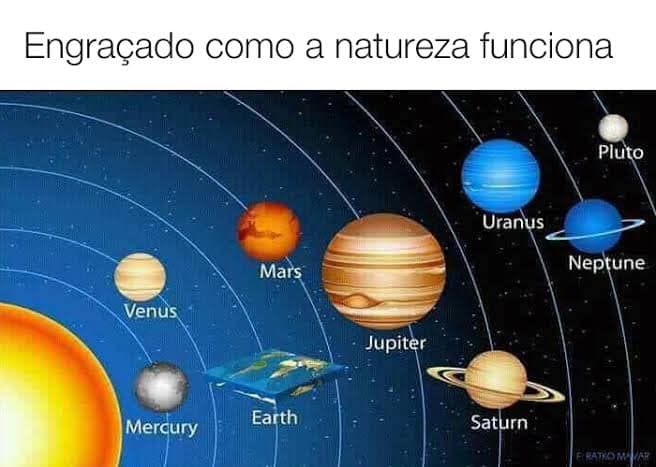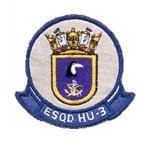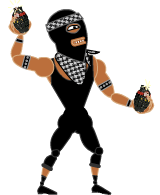If the presence of Qatar in Mali is confirmed, it is difficult to establish how the emirate is trying to change the political and strategic situation. However, despite the lack of proof of Qatari involvement in supporting armed fighters, there is some evidence that this might be the case.
It is likely that ECOWAS is preparing for a military intervention to regain northern Mali following the military coup of March 22, 2012 that overthrew the regime of Amadou Toumani Touré. At the same time more and more is being said about Qatar's involvement in this part of the Sahel. Taking advantage of the dual crisis afflicting this country - Islamist groups have benefited from the Tuareg rebellion to take control of the north and a military coup overthrew the incumbent president in Bamako - the emirate could be engaged in advancing its pawns in that territory on a path towards Afghanization. A game which if confirmed would prove quite dangerous.
Qatar's presence in Mali has been proved but in a manner that remains unclear
The presence of Qatar in Mali is already known, but it is difficult to argue from this that the emirate is trying to change the political and strategic situation in one specific direction or another. However, despite lack of proof of Qatari involvement in supporting armed fighters, there is some evidence that this might be the case.
Firstly, Qatar already has a network of various funding projects which include madrassas, religious schools and charities which date from the 1980s and 1990s in Mali, as in other Muslim-majority countries in Africa. Secondly, following an agreement between the Qatari Red Crescent and Red Cross Mali held in Doha in August, Qatari aid is present on Malian soil to act in solidarity with the people of the north, particularly around the triangle of Gao, Timbuktu and Kidal.
More worryingly, and to be treated with caution, is information taken from Le Canard Enchaîné and reprinted by the French and international press to the effect that Qatar is helping to fund armed groups, and that the Qatari Special Forces are supporting certain rebel factions in northern Mali by training their recruits (especially those of Ansar Ed-Dine). This information comes from a recent report by the French DRM (Military Intelligence Directorate under the Ministry of Defense). However, the lack of first-hand information, due in part to the conflict on the ground, makes it difficult to assess the accuracy of Qatari engagement in northern Mali and to put this report into perspective.
However, regardless of the degree and intensity, the presence of Qatari forces in Mali has been, and continues to be, a strategy used increasingly in Africa, especially since the Arab Spring. The emirate became involved in the financing of political parties such as the Muslim Brotherhood in Tunisia and Egypt in 2011 and 2012, was involved in mediation in Darfur which was held in Sudan in 2011 and engaged in the NATO coalition that fought the regime of Muammar Gaddafi in 2011 (similarly, Qatar has also funded rebel fighters in Libya). Besides the presence of the Qatari Red Crescent humanitarian aid in Mali, one may speculate about other possible reasons for their presence in this part of the Sahel.
What are the interests of a Qatari presence in Mali?
If the assumption of funding, even training and arming Islamist groups by Qatar forces in northern Mali is confirmed, then it is possible to draw several conclusions.
Firstly, this intervention would provide the emirate with a simple but risky strategy to greatly increase its influence in West Africa and the Sahel. Indeed, Qatar could greatly increase its influence in the mediation between the Malian government, ECOWAS, the northern rebels, and even France. This would increase its political clout on the continent, taking advantage, as it often does, of a favourable political environment. In the case of Mali, it is a failed state with a sudden power vacuum in the North, due both to the Tuareg rebellion in the North and the coup in the South. Add to this, the fortuitous presence in the Sahel of many fighters together with the weapons used in the recent war in Libya , alongside the presence in the North of young and unemployed Tuaregs opposed to the Malian state, and one can see how it might be possible to fund the rebels.
Using this combination of favourable factors, the emirate can see a way to continue making its influence heavily felt in Africa, work also undertaken in Egypt, Libya and Tunisia. In this respect, as in the case of Qatari engagement in Syria, two factors are in common. Firstly, after the success of the Libyan campaign, the emirate feels confident in being able to directly intervene abroad in a power perspective. In addition, as in Syria, the presence of the emirate in Mali, if it is real, should be viewed in the context of a twofold competition: first with Saudi Arabia to control the Sunni Islamic world, but also to strengthen the power struggle of Sunni Muslims against Shiite Muslims (because the axis Iran - Syria - Hezbollah remains strong while the Shia in Iraq rises).
Another common point, but this time with Libya, is that Mali is seen as a potential owner of large reserves of natural gas and has a need for infrastructure development; two areas in which Qatar specializes. It could therefore, in the event of good relations with the leaders of an Islamic state in northern Mali, exploit the subsoil rich in gold and uranium, and prospect the country’s oil and gas potential.
Finally, geographically, Mali is also an axis of penetration into black Africa and West Africa where Qatar is pursuing its influence through the purchase of resources and agricultural land, as well as the funding of places of worship.
An intervention, if proved, which could turn against Qatar
The situation in Mali illustrates how the problematic situation in the Sahel arouses considerable concern because of the weakness of states in the region and the presence of AQIM and other jihadist fighters. In addition, the war in Libya in 2011 has worsened the situation, as evidenced by the recent assassination of the US ambassador in Benghazi, Christopher Stevens. In Mali, the fragmentation of the state is not only due to intrinsic factors (Tuareg rebellion, structural weakness of the state, democratic façade, poor development) but also the direct consequence of a poorly controlled Libyan crisis.
In this context the intervention of Qatar, should it prove as controversial as outlined, is very unwelcome and four players could take umbrage: the United States, France, Algeria and the African Union. French and American redeployment in the region is indeed currently in place to try to stop the downward spiral of northern Mali. The United States is refocusing its security efforts on North Africa and the Sahel, especially after the assassination of its ambassador and given the prospect of imminent withdrawals of military forces in Iraq and Afghanistan. France, the traditional power in the region, has recently had several of its citizens taken hostage in Mali and are under pressure from numerous economic and political interests. However, the United States and France have very strong relations with Qatar, which in the case of Mali, unlike the Syrian intervention, could go against western interests. The United States and France could make Qatar understand their decision to intervene, yet we have to wonder about the scope of 'retaliation' possible vis-à-vis an emirate that is important economically, politically and militarily to the two countries.
Meanwhile, the African Union is trying to assert itself as an influential political power and wants to resolve conflicts on its own soil, namely through its regional organization, ECOWAS, who have amassed a force of more than 3,000 men. If the strategy of Qatar is financing or arming fighters in northern Mali, then this complicates the African Union’s task. However, its ability to act and to influence the decisions of Qatar is very low (except through the EU or France). Algeria, for its part, is particularly concerned by the situation in northern Mali. On the surface, Qatari-Algerian relations are strong since the two countries are 'brothers'. However, Algeria is monitoring this situation very closely because it fears an attempt to destabilize its borders and even its own soil. More generally, a Qatari intervention in northern Mali would increase Algeria’s animus against the emirate. Despite recent agreements, the two countries oppose each other economically in their competition for gas exports, as well as politically (financing of the Muslim Brotherhood in North Africa by Qatar, which also hosts on its territory the former FIS leader Abassi Madani, is frowned upon by Algeria, as well as the fact that Qatar joined the NATO coalition in Libya while Algeria advocated non-interference). In addition, MOJWA (the Movement for Jihad in West Africa), which could be financed by the emirate of Qatar, holds seven Algerian diplomats (kidnapped in April 2012 in northern Mali) hostage. Algeria, besides being a regional power, is therefore a key state in the Malian crisis but is reluctant to intervene because of its 1,300 km border with northern Mali in an area extremely difficult to control. Doing so would indeed carry the risk of a new terror strike on its soil, as happened in the 1990s.
Algeria, like the United States and France has no interest in the status quo in the Sahel, and if Qatar intervenes, these states could potentially react. However, given the regional situation there is more for Qatar to gain than to lose from an intervention in northern Mali. This of course is true only if the United States and France put the problems of the Malian crisis before their common interests with Qatar, which are indeed numerous.
“Notre ami du Qatar finance les islamistes du Mali” in Le Canard enchaîné, 6 June, 2012 edition.
Malika Groga-Bada, “Mali: et si les islamistes convoitaient l’or noir ?”, in Jeune Afrique, July 19, 2012 edition.
Mehdi Lazar, “Axe sunnite et gazoduc : quand les Qataris interviennent en Syrie pour le plus grand bonheur des Occidentaux”, in Atlantico, August 26, 2012.
Mehdi Lazar, “Qatar : une politique d’influence entre conjoncture favorable et fondamentaux géographiques”, in Diploweb, May 27, 2012.







